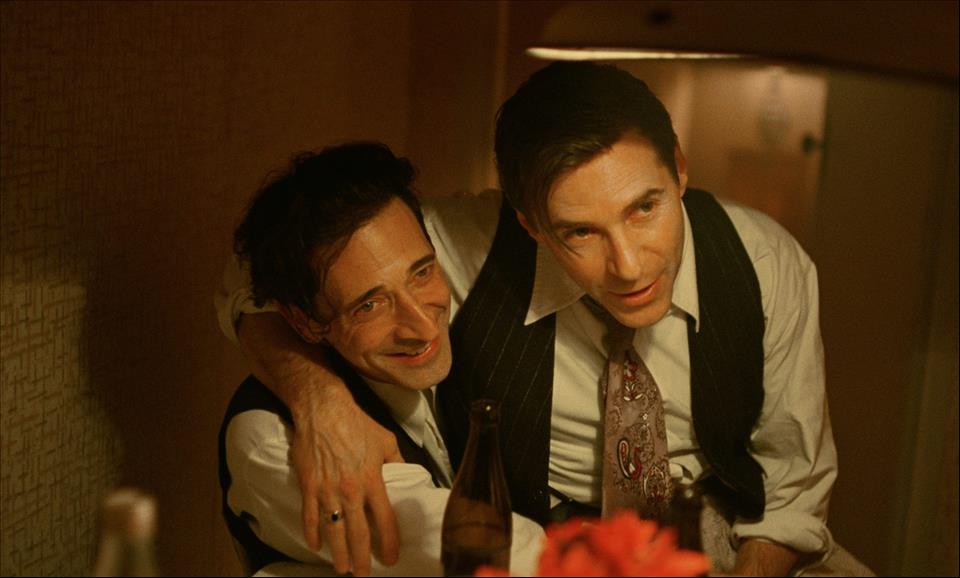
AI Voice Technology Used In The Brutalist Is Nothing New The Backlash Is About Transparency
Many of today's actors are superb at delivering accents – like American Renée Zellweger's perfect English in Bridget Jones, or British actor Idris Elba's Baltimore accent in The Wire or Australian Margot Robbie's utterly convincing American accent in Barbie.
For The Brutalist, the accent challenge faced by Brody and Jones was truly brutal: the tricky vowel sounds of the Hungarian language. It was even difficult for Brody, whose mother was a Hungarian refugee who arrived in the US in 1956.
Looking for something good? Cut through the noise with a carefully curated selection of the latest releases, live events and exhibitions, straight to your inbox every fortnight, on Fridays. Sign up here .
Brody's character is László Tóth (roughly pronounced Laslo Tort), a Hungarian-Jewish architect who emigrates to the US after the Holocaust. Jones plays his wife, Erzsébet (roughly Air-zhay-bet), trapped back in Europe. During the film's post-production, the Budapest-born editor, Dávid Jancsó (pronounced Daavid Yancho), was looking for accent perfection. So he reached for an AI tool that could make Brody's and Jones's accents sound convincingly Hungarian.
The controversy over this decision is surprising because it's nothing new. I have been researching the creative use of AI in filmmaking for the past six years. Recently, the biggest progress has been in voice AI. Voice cloning technology has been misused, causing outrage over unlicensed vocal replicas of Jennifer Aniston, Scarlett Johansson and David Attenborough. But The Brutalist made just tiny alterations to two actors' voices – and with consent – which in comparison is hardly shocking.
My research has involved interviews with Alex Serdiuk, CEO of the voice cloning company, Respeecher , which worked on The Brutalist. Two years ago, Serdiuk told me about the accent tools that they were developing. He is Ukrainian but speaks superb English in his native accent. Listening to my voice, he said that with Respeecher's new AI tool,“we basically can make you speak with my accent. I would be your accent donor”.
The technology could even help out US actors working on a British production who lack Renée Zellweger's accent skills:“We can just take their performance speaking American English and apply a Royal British accent on top of it,” says Serdiuk. This was the AI tool that Dávid Jancsó used on The Brutalist, taking his own Hungarian vowels and consonants and applying them to Brody and Jones.
Respeecher has been working with Hollywood for years. For The Mandalorian in 2020, the company used AI to create the more youthful voice of Luke Skywalker (Mark Hamill was 68 at the time of shooting). In last year's Robbie Williams biopic, Better Man, (directed by Michael Gracey), Respeecher helped create Williams' voice for his CGI chimp avatar.
So what is the problem with The Brutalist? The big issue here is transparency. No one likes to feel deceived and this backlash is emerging after American viewers saw the film without knowing. We learned the lessons of transparency back in 2021 with the documentary, Roadrunner , a film about the celebrity chef Anthony Bourdain who died in 2018.
Oscar-winning director Morgan Neville used voice cloning and did not tell anyone about it – until his audience worked out that a sequence where Bourdain reads his own email couldn't have happened. Viewers felt deceived (Neville told critics that there were other moments in the film where he also did it, but wouldn't say where). Dávid Jancsó's use of AI in The Brutalist is tiny in comparison, but the reaction it has provoked is once again down to the audience being kept in the dark.
Transparency is of paramount importance in generative AI. The technology can deceive us so easily that public confidence is only possible with full disclosure. The principle is part of the UK government's current consultation on copyright and artificial intelligence.
Martin Adams is co-founder of MetaphysicAI, the company that did the deepfake ageing and de-ageing of Tom Hanks and Robin Wright for the recent movie Here . In a hearing last month, he told parliament's Culture, Media and Sport Committee:“We should have pre-, during and post-disclosure. That will give audiences the trust and transparency that means AI can be used for the right things and we do not get whipped up and talk about misleading people.”
In parallel, there is another trend developing: full disclosure that AI has not been used in a film's production. Scott Beck and Bryan Woods are the directors of the recent Hugh Grant psychological horror, Heretic. They decided to put a statement in the film's credits:“No generative AI was used in the making of this film”.
The filmmakers are part of a forceful negative response to AI in their industry. Woods is furious at the increasing use of the technology, saying:“I think this idea that an algorithm can just scrape all of human history and art off the internet, repackage it, regurgitate it, spit it out and somebody else can use that to create profit ... I don't know why that's legal.”
His statement demonstrates the emotions aroused by AI in the film business. It is this intensity of reaction that might pull the wheels off Brady Corbet's Oscar hopes. The controversy is certainly making the competitors of The Brutalist happy.
But delicate use of voice AI in post-production is not what created Adrien Brody's superb performance, meriting a Golden Globe and perhaps yet an Academy Award. Nor should it detract from the creative achievements of the many human talents involved in creating this extraordinary film.

Legal Disclaimer:
MENAFN provides the
information “as is” without warranty of any kind. We do not accept
any responsibility or liability for the accuracy, content, images,
videos, licenses, completeness, legality, or reliability of the information
contained in this article. If you have any complaints or copyright
issues related to this article, kindly contact the provider above.

















Comments
No comment